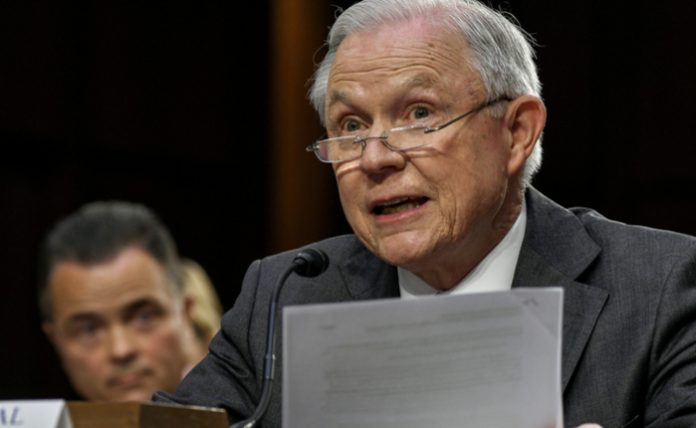As the international cannabis market reacts to the outcome of the 2018 U.S. midterm elections, the sudden resignation of Jeff Sessions has sent many stocks flying.
Former U.S. Attorney General Jeff Sessions announced a sudden resignation earlier today, sending shares across the sector surging as many recovered substantially from the ongoing bearish trend running through the sector.
“The entire space is now rallying on the Sessions news,” said managing director Russell Stanley at Beacon Securities. “The industry viewed Sessions as a major obstacle to cannabis legalization and so this risk has now been removed – the industry, especially companies that derive bigger operational benefits from the U.S., are responding to that.”
Earlier in the year, Jeff Sessions rescinded an Obama-era policy concerning marijuana enforcement, ending what used to be a period of non-interference with state laws that were friendly towards cannabis. “The Sessions memo actually galvanized the legalization movement and got them to circle the wagons, which completely backfired on Sessions,” added Stanley.
In response to the sudden resignation, ETF’s such as Horizons Marijuana Life Sciences Index in Canada, and the U.S.-listed ETFMG Alternative Harvest ETF gained 7 and 6.2 percent respectively.
The most significant surge, however, came from Vancouver-based Tilray Inc (TSE: TLRY), shooting up by 30.6 percent in a single trading session, marking its biggest gain since September 19th when shares almost doubled before settling back down. Other major companies such as Aurora Cannabis (TSE: ACB) and Canopy Growth Corp (TSE: WEED) saw their share prices rise around 7 percent today, while Aphria (TSE: APHA) increased by 5 percent.
Sessions resignation comes after four states voted on whether to legalize recreational and medical marijuana, with Michigan (perhaps the most important state of the four for cannabis investors) ending up legalizing the possession, use, and cultivation of cannabis for those who are at least 21 years old.
The newly approved law would impose a 10-ounce limit for marijuana kept at personal homes, mandating that quantities over 2.5 ounces be secured in containers. Michigan residents will also be able to grow several marijuana plants for personal use as well.
With Michigan becoming the 10th state to legalize recreational cannabis, estimated sales could grow to as much as USD 1.7 billion by 2020, when sales are predicted to begin. Considering that the total U.S. market is expected to be worth $11 billion by the end of the year, Michigan’s contribution to the countries cannabis market size is significant.
“[Sessions] was the biggest foe in the administration,” said Ken Shea of Bloomberg Intelligence, “This might give Trump a little more wiggle room to be more cannabis oriented.” With countries across each border, both Canada and Mexico, either legalizing marijuana or making moves to do so, there’s increasing pressure amongst the current administration to move towards a more pro-cannabis position.
Cannabis enthusiasts also found good news in the defeat of Representative Pete Sessions, a Texan Republican who repeatedly blocked pro-marijuana legislation multiple times while he served as the chairman of the House Rules Committee. Overall, more states are embracing medical marijuana, with Missouri as well as Utah passing propositions to allow medical cannabis. These two additional states would allow close to 70 percent of Americans to have access to marijuana for medical purposes, a positive sign for the industry’s future in the U.S.










